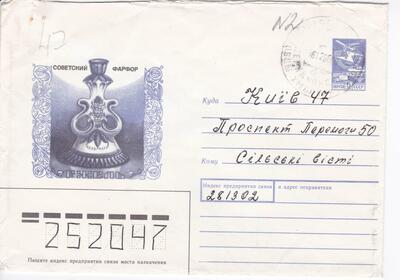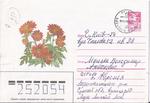Letter sent from: Chenelivtsi, Derazhnia raion, Khmelnytsk oblast
Letter describes events in 1932-1933 in: Dubova, Lityn raion, Vinnytsia oblast
Current location name: Dubova, Zhmerynka raion, Vinnytsia oblast
Vasylchenko was a child in a family of 4 and had one brother. Everyone survived. Details the stages of
requisitioning that their family went through, up to dispossession. Their family was not rich, their land was
not good, but eventually they were kicked out of their house for the tax arrears.
Describes in rich detail abuses of power by officials and “activists,” and the survival strategies: everything he
and his brother did to find food, what kind of weeds, berries and animals they ate, as well as life after 1933.
At some point he was “mock executed” by the village head, who had caught him carrying a pod of green peas.
In the second part, 1933-1940, he describes all kinds of taxes that were imposed on peasants, the miserable
pay, going to school, what he wore, how people worked for the collective farm—and at night, for their own
households. His mother eventually went to work for a state farm, where she was paid better and given food
twice a day so that she could feed her children too: they walked 5-8 km to have something to eat there,
however meager. When his mother got sick, he and his brother worked for her to get paid and fed. All food
was brought from the city. Cooking oil was low grade.
It took two days to take down the domes of the church. Calls the village head pejorative names; mentions that
some people did “important” work and were getting better bread, and calls them “katsapy,” meaning goatees,
usually a pejorative term for Russians. He attributes the decline of the mores in the countryside to the
lawlessness of the Holodomor.
Ukrainian transcription available.



